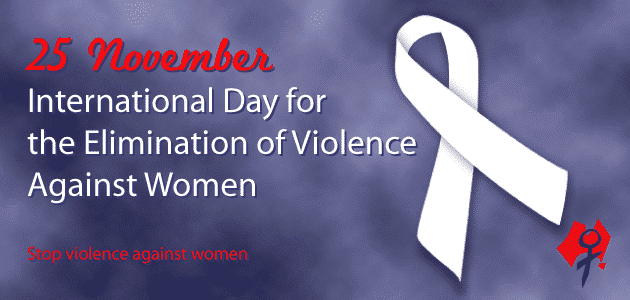
In view of the seriousness of this violation of girls’ and women’s human rights, AGE, which is a member of the European Coalition to end violence against women and girls, takes the opportunity of the International Day for the Elimination of Violence against Women to call on the European institutions and European Union countries to further prioritise the issue of abuse and violence against older women in their agendas.
Older women also suffer abuse and violence
Gender-based violence affects girls and women of all ages. When it comes to older women, many of them have reached old age carrying very serious stories of violence and abuse in earlier stages of their lives. In many cases of trauma, memories only (re)emerge only in older age. Resignation, powerlessness and invisibility are all too common among older women, and constitute true obstacles for them to access support and protection.
Moreover, gender intersects with age-related abuse and violence, which increases the likeliness of older women to suffer violence at some point of their lives. As highlighted by the workshop on victims of elder abuse organized by AGE last 14 June 2017 to mark the World Elder Abuse Awareness Day, police and law enforcement bodies are not always well equipped to understand and detect abuse and violence against older people and offer adequate protection. Older women who suffer domestic violence face a particularly high risk of invisibility.
Europe needs to move faster towards true gender equality
The European Institute for Gender Equality (EIGE) has just published their 2017 Gender Equality Index. It shows that, whereas there has been some progress, it is taking place “at a snail’s pace”. Inequalities persist in all fields, such as housework, use of time and power. Economic inequalities persist and accumulate at the end of the life – the gender pension gap stands at just under 40 %. EIGE has already pointed out in 2015 that this economic dependence might increase the risk of older women to stay with abusive partners or in abusive settings.
AGE welcomes the update of the Index, a European Union initiative that should be accompanied by further EU action in fighting gender- and age-based inequalities and violence. The momentum offered by the recent ratification by the European Union of the Istanbul Convention on combating violence against women and domestic violence is an opportunity that the EU musts seize to bring changes in public perceptions, policy, and practice. The time is to adopt more ambitious measures to end violence against women, which may include specific EU legislation.
For more information on AGE’s work around gender equality you may contact Philippe Seidel, philippe.seidel@age-platform.eu; for questions about gender-based violence and elder abuse, you may get in touch with Borja Arrue, borja.arrue@age-platform.eu






